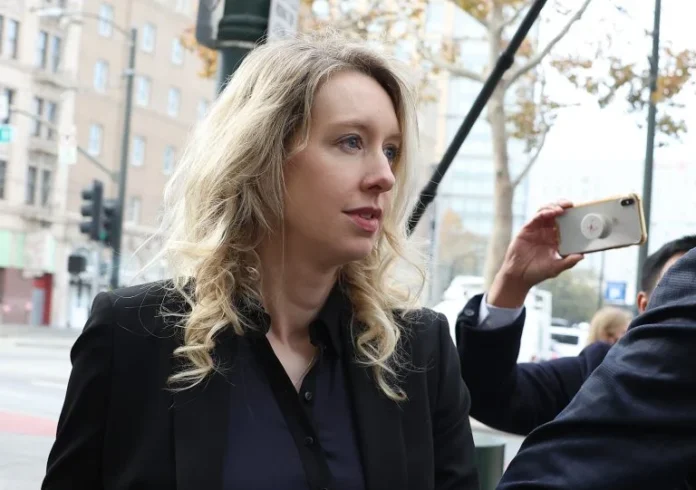Elizabeth Holmes, the disgraced founder of Theranos, has spoken out about her time in federal prison, calling the experience “hell and torture.” In a newly published interview with People magazine, Holmes reflected on her incarceration, the public perception of her, and her plans for the future.
Holmes, once hailed as a revolutionary entrepreneur in the biotechnology industry, was convicted of fraud and sentenced to over 11 years in prison in 2022. She is currently serving her sentence at the Federal Prison Camp in Bryan, Texas. The former Silicon Valley executive, who was portrayed by Amanda Seyfried in Hulu’s The Dropout, described her prison stay as surreal and emotionally draining.
A Journey of Reflection and Hardship
In her conversation with People, Holmes shared that her time behind bars has forced her to reassess her life and beliefs. “It’s surreal. People who have never met me believe so strongly about me. They don’t understand who I am. It forces you to spend a lot of time questioning belief and hoping the truth will prevail,” she said.
Holmes’ remarks suggest she continues to grapple with her public image. Though she maintains that she is walking “by faith and, ultimately, the truth,” she admits that prison life has taken a significant toll on her mental and emotional well-being.
Her Sentence and Early Release
Holmes was sentenced in November 2022 after being found guilty of defrauding investors in Theranos, a startup she once claimed would revolutionize blood testing. Despite her original sentence of 11 years and three months, federal records indicate her release date has been adjusted to December 23, 2032—two years earlier than initially scheduled.
This reduction in time served has sparked discussions about the federal prison system’s policies regarding sentence adjustments. However, Holmes did not directly address the change in her interview, focusing instead on the personal impact of her incarceration.
Reflections on Change and Advocacy
During the interview, Holmes expressed remorse but stopped short of admitting full responsibility beyond her guilty plea. She acknowledged that there are things she “would have done differently” and emphasized how incarceration has exposed her to the struggles of other inmates. “So many of these women don’t have anyone, and once they’re in there, they’re forgotten,” she noted.
Holmes also hinted at future advocacy work, stating that she hopes to push for criminal justice reform upon her release. “Human beings are not made to be in cells. It goes so far beyond understanding,” she said, becoming visibly emotional. “I’m trying to grow, as every moment matters. And if one person’s life can be touched trying to help them in a crisis, it matters.”
While her past actions led to financial devastation for many investors, Holmes seems intent on shifting her narrative towards rehabilitation and social justice.
Controversy Surrounding Media Portrayals
This is not the first time Holmes has sought to reshape public opinion. Before entering prison, she participated in a controversial profile for The New York Times, titled “Liz Holmes Wants You to Forget About Elizabeth”. The article, published in May 2023, faced backlash for portraying Holmes as a sympathetic figure rather than a convicted felon.
Critics argue that her latest interview follows a similar pattern. By focusing on her personal struggles and aspirations for reform, Holmes may be attempting to regain public favor. However, whether this strategy will work remains uncertain.
A Mother Behind Bars
In addition to discussing her legal troubles, Holmes also opened up about the difficulties of being a mother while incarcerated. She shares two children—William, 3, and Invicta, 2—with her partner, San Francisco hotel heir Billy Evans.
Holmes described the pain of separation as “shattering”. “It kills me to put my family through pain the way I do. But when I look back on my life, and these angels that have come into it, I can get through anything,” she said. “It makes me want to fight for all of it.”
Her emotional remarks highlight the often-overlooked reality of mothers in the prison system. Many women in federal facilities struggle with the hardship of raising children from behind bars, an issue Holmes now experiences firsthand.
The Road Ahead
As Holmes continues to serve her sentence, her future remains uncertain. While she has expressed a desire to advocate for criminal justice reform, skepticism persists regarding her motivations.
For now, Holmes remains behind bars, where she will serve the remainder of her sentence unless further legal developments alter her fate. Whether the public will accept her as a reformed figure or continue to view her as a disgraced entrepreneur remains to be seen.


